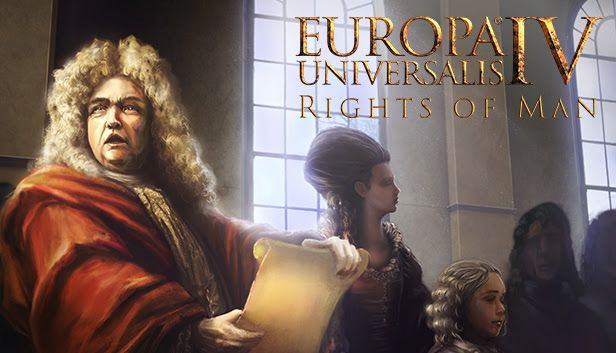This week, the latest big expansion to Europa Universalis 4 hit the Steam Store. Europe Universalis 4: Rights of Man revamps one of the game’s core systems—technology—and adds in the very welcome addition of Great Power politics. And this player finally decided to dive in—not just to Rights of Man, but to all of Europa Universalis 4. Trust me, it’s a trip, but the new expansion and technology system feels great.
Europa Universalis 4: Rights of Man Review: Complicated But Worth It

Games from Paradox Development Studio are notoriously tough to crack. They have incredibly complex mechanics, some of which vary greatly depending on who you’re playing, and they usually aren’t explained very directly. Europa Universalis is extremely complicated in the first place. Jumping in on the eighth major expansion makes it far more daunting. I’ve had the game for years, but never had a computer that could run it. Now that I finally do, I dove straight in (full disclosure: I played EU3 extensively, so I didn’t come in completely blind).
Figuring out a Paradox game with eight layers of expansions on it is extremely difficult. It requires a lot of jumping onto the invaluable EU4 wiki and into the Paradox forums, where every question has been asked before. The game has so many overlapping and complex systems, some part of the base game, others added later, that it’s difficult to fully comprehend everything. A century into a first playthrough, I’ve only got the basics down, and even that’s being a bit generous.
Rights of Man Features: Institutions
All that being said, from a newbie’s perspective, the new features in Rights of Man clearly add a lot to EU4. Three of them stand out as particularly noteworthy. First up is the new Institutions system, which replaces the old technology system by which non-European powers were inherently crippled. Now, those countries are just usually crippled, but that’s based on their decisions, not set in stone.
Non-western countries no longer have to westernize to keep ahead in technology. Instead, all countries need to adopt the new Institutions so they can keep up. Institutions represent major ideas that transformed the period—from the Renaissance and the Printing Press to Colonialism and the Enlightenment. Institutions are created in locations that meet certain criteria, and then slowly spread across the map from there. Countries can adopt each Institution, and their technology growth progressively slows down until they do. As a non-European power, it provides an incentive to meet the criteria and try to establish an Institution before the Europeans do, or independently; as another European, it forces players to be adept and encourage the spread of new ideas. Overall, it’s simply a more dynamic system and expands the array of strategic choices available to every player.
Rights of Man Features: Great Powers And Great Men
The two other key features in Rights of Man are the addition of Great Power politics and the importation of Crusader Kings II-style personality traits for rulers and their spouses and heirs. Now, the eight most powerful countries in the world as rated by their overall development and technology levels gain an array of special powers—most notably, the ability to intervene in wars that other Great Powers are involved in. They can also pay off loans for lesser countries, force them to break their alliances and generally throw their weight around. The feature feels like a very natural addition to the game, since it makes so much sense historically, but I’ll admit that after only 15 or 20 hours with the game, the full implications are still playing out. The feature matters more later in the game, when most of the Great Powers are in Europe and large-scale wars arise.
Among EU4 veterans, the addition of ruler traits seems to be the most exciting new feature. Ruler traits and personalities make the game far more dynamic and realistic; no longer will every country simply pursue its own best interest. Now, the monarch’s personality will influence the state’s actions. Some leaders will be recklessly expansionist and start needless wars; others will be zealots focused heavily on religion; others will bungle their country’s trade into the ground. The system adds a lot more character to Europa Universalis 4 and results in more dramatic and tense moments in history—like when your neighbor has a reckless warmonger at the helm.
EU4: Rights of Man adds a lot of other new features, including the ability to debase currency, country-specific governments for the Prussians and Ottomans, and an improved AI generally. It’s good stuff, but it’s definitely tricky to learn if you don’t know Europa Universalis IV already. Just dive straight in, be patient, and look a lot of stuff up—you’ll be well rewarded.













![[EG April 19] Best 'Stardew Valley' Mods That Will Change](https://d.player.one/en/full/226012/eg-april-19-best-stardew-valley-mods-that-will-change.png?w=380&h=275&f=955520b8313253ee3c39c791f6210f38)



